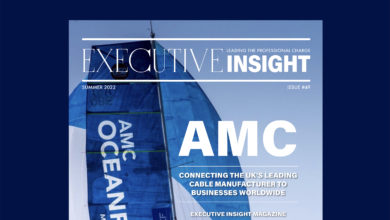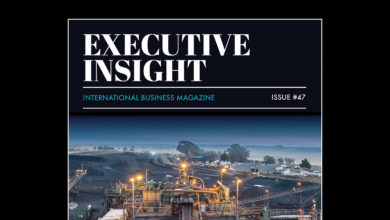Very few companies succeed in reaching the century mark as Sanlam has, but then again very few companies have proved so adept at looking ahead with the long-term in-mind, nor the ability to adapt and evolve to stay relevant in a changing world.
Since its establishment in the early 20th century, Sanlam has been a prominent part of the South African business landscape. Over the years, Sanlam’s focus has gradually shifted away from traditional life insurance to providing a broader range of financial products and services, and through the successive of an aggressive expansion campaign stretching the length and breath of the globe, Sanlam has grown into a true industry behemoth.
Today, Sanlam is a diversified financial services provider with an extensive product offering catering for all market segments. The Group has consistently grown its local as well as an international footprint – it now has a presence in more than 10 African countries, India, Malaysia, Philippines, the UK & Ireland, the US, Switzerland, and Australia.
Headquartered in Cape Town, and listed on the Johannesburg Stock Exchange and the Namibian Stock Exchange, Sanlam is a South African financial services giant with a vast global footprint. Initially established in 1918 as a life insurance company, Sanlam Group has developed over time into the diversified financial services business it is today. Through its subsidiaries – Sanlam Personal Finance, Sanlam Emerging Markets, Sanlam Investments, Sanlam Corporate and Santam – the group provides financial solutions to individual and institutional clients across all market segments.
The group’s areas of expertise is considerable, encompassing insurance, financial planning, retirement, trusts, wills, short-term insurance, asset management, risk management and capital market activities, investment and wealth. The group operates in South Africa, Namibia, Botswana, Swaziland, Malawi, Zambia, Tanzania, Rwanda, Uganda, Kenya, Ghana, Nigeria, Mozambique, India, Malaysia and the UK and has business interests in the US, Australia and the Philippines. It has a stake in leading global micro-insurance specialists, UK-based Micro-Ensure Holdings Limited, which has a footprint across Africa and India servicing more than 10 million enrolled clients.
Sanlam Emerging Markets (SEM) is responsible for Sanlam’s financial business services – life assurance, general insurance, banking, credit, health, bancassurance and asset management – in emerging markets outside South Africa. Its objective is simple – to ensure sustainable delivery and growth across the various businesses that make up this cluster.
In-line with Sanlam’s vision, SEM strives to lead wealth creation in a number of markets, and has operations in Botswana, Namibia, Malawi, Kenya, Rwanda, Tanzania, Zambia, Ghana, Nigeria, Uganda, Mozambique, India and Malaysia, among other countries, to achieve this end. Suffice to say, SEM’s reach and range is considerable indeed, but its ambitions don’t stop here. Far from it.
SEM has made true on its announcement to the world that the firm is now training its corporate focus on organic growth opportunities across the sub-Saharan market. SEM’s CEO, Mr. Junior Ngulube noted that, although structural growth remains an important bottom-line contributor, the firm is now aiming to adopt organic market prospects as its main growth driver.
“SEM’s broad strategy, which has remained the same over the years, has proven its worth. We’ll continue on this path, although we’re gradually shifting our focus even more towards organic growth as opposed to structural growth. Although structural growth remains an important contributor, our aim is for organic growth to become SEM’s main driver going forward,” he said.
Flush with excess cash, Sanlam has been on an acquisition spree across emerging markets and Africa at a time when its main African rival, London-based Old Mutual Plc, is splitting up its businesses after expanding mainly into developed markets. Sanlam has made at least five acquisitions since the start of 2017, with deals in South Africa, Zimbabwe, Kenya, Uganda and London.
The Cape Town-based insurer will is set to spend a further US$1.1 billion to take full control of Morocco’s Saham Finances SA, bringing its total investment in the firm to almost US$1.7 billion since February 2016. The deal will give Sanlam access to Saham’s 26 markets across North Africa, the Middle East and West Africa and builds on its business that spans 11 African countries, India and Malaysia.
“We believe in the African growth story, we’re up and running, we’re doing it,” Sanlam CEO Ian Kirk announced. The Saham deal “positions Sanlam as the ‘go-to’ financial services provider for multinationals, brokers, banks, other distribution entities, as well as a preferred network of partners for international insurers with no African footprint.”
However, fresh from sealing its biggest ever deal, Sanlam’s hunger for expansion is far from sated. Even still. SEM is still scouring Africa for more even more acquisitions to extend its lead as the continent’s largest financial-services company outside of banking. The insurer is looking for “bolt-on” acquisitions that will ensure its business is “number one, two or three” in the markets where it operates, in-line with Junior John Ngulube’s strategy to dominate the market. One more such forthcoming acquisition could be in the pipeline, following talks on a partnership in Ethiopia, which it is hoped will convert to an equity investment once the country opens its insurance industry to foreign investors.
In the opinion of experts, this aggressive acquisition strategy on the part of Sanlam has been timed perfectly. Warwick Bam, an analyst at Avior Capital Markets in Cape Town, announced: “From a timing point of view, they might have caught this one right. They’re investing when markets and economies are at a low point. These valuation multiples could quickly unwind once we start seeing growth improve and businesses start investing in the continent.”
This strategic fusion of aggressive acquisition versus organic growth; international focus versus local, is a fascinating one, and is setting the company in good stead for the years to come. Here’s to another century!



